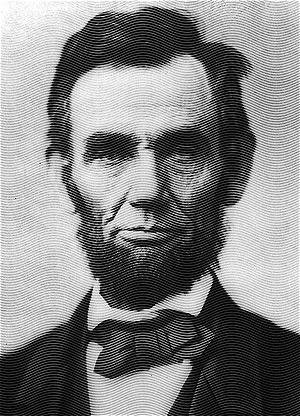I came across this powerful quote from the New York Times in 1862 in my continued reading of Goodwin’s Team of Rivals. This was written during a very low season for the Union in the Civil War and people were looking to have someone’s head to blame – most were targeting then Secretary of War Edwin Stanton.
“The first necessity of every community after a disaster, is a scapegoat. It is an immense relief to find some one upon whom can be fastened all the sins of a whole people, and who can then be sent into the wilderness, to be heard of no more.”
– New York Times, July 7, 1862 (on pg. 447 in Team of Rivals)
This captures so well the family system’s concept of anxiety. Crisis breeds anxiety and when that anxiety hits a certain threshold, in the absence of great leadership, someone’s going to pay for it with their job or maybe even their head. The quote above addresses the systemic drive to punish somebody or blame somebody so that they can relieve their anxiety and preserve some twisted form of hope. I think the last couple years there’s been a fair amount of this going on in our own anxious society – some of it deserved, some of it not. But there’s been an anxiety frenzy in our society and scapegoating is alive and well. It sometimes is an individual dynamic and as above, sometimes it is a corporate or systemic dynamic.
The book presents two great pictures of individual leadership and scapegoating in the face of pressures and anxiety. President Lincoln always took the blame upon himself for failures or disasters, often going to great lengths to take the heat heading towards someone else upon himself instead. This was part of why so many became so loyal to him over time.
The other picture of leadership is General McClellan, General of the Army of the Potomac. If you read a lot about the Civil War you may know more about him than I do, but this guy might possibly be the greatest scapegoater/blameshifter of all time. Reading through his letters to his wife as documented in the book has left me with more than one dropped jaw at the level of vanity, arrogance, and foolishness that this man possessed. His blameshifting and overall lack of character, one can argue, caused the Civil War to go on for several years beyond what was needed and cost hundreds of thousands of more lives than were needed. In just about every event in the Civil War recorded, McClellan took credit for any victory – even when victory had nothing to do with his actions. On another hand, in every failure or disappointment, McClellan shifted blame towards others and often defiantly, arrogantly, and with great disrespect.
I’m struck by the phenomenon that by a leader refusing to blameshift personally, in the face of anxiety and attack, that leader can diffuse the corporate or systemic anxiety out there at large. This is the non-anxious presence that I’ve posted on before. If the leader blameshifts, he actually fuels the anxiety that is embedded in the system and I think it will eventually come back to him in even greater measure.
Lincoln demonstrated this in one unprecedented speech when he took full responsibility for the recent military failure that caused everyone to despair and look for Stanton’s head. He took responsibility, communicated great empathy, told the truth about the reality behind the events in question, and then told people to stop directed their energies or anxiety to a place that it wasn’t merited.
The result? People chilled out and a more unified spirit began to prevail again and the general anxiety diminished.
Man – I’ve seen these situations – opportunities for great leadership and I’m so tired of seeing people indirectly throw people under the bus, fail to take responsibility, just fail to address the truths behind the reality, hide behind secrecy, or blatantly throw responsibility at someone else’s doorstep. In short, I grow weary of seeing leaders add to the anxiety of a system rather than alleviate it because they simply don’t have the fortitude or personal security to look in the mirror.I don’t know about you, but I would much rather be closer to Abe Lincoln than Gen McClellan in this regard.

Brian, that was probably one of the best posts you have written. I am not sure if it because I enjoy Lincoln & Civil War history so much or if it is because I just went through a series of events with some blame shifting, but this resonated with my significantly!
thanks steve! This is the first history / war book I’ve read in many a year and it’s really been good for me and insightful.
In response to your comment – I think blameshifting makes the world go round. It’s part of the essence of fallen societies, communities, and individuals. I love that the Kingdom of God offers something different.
Good to see you ready to fire up the blog again dude! Looking forward to it. Take care man.